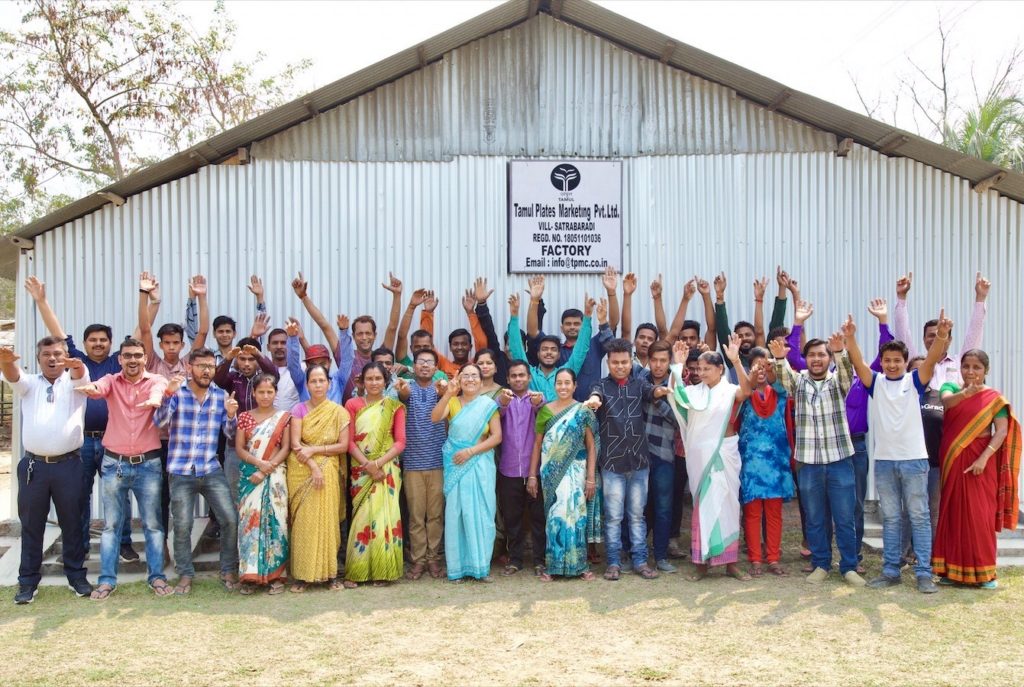This financial year 2020-2021, Women on Wings’ partner Tamul Plates Marketing Pvt Ltd (Tamul) from Assam had planned to multiply its domestic and export sales of biodegradable plates and cutlery by three times. In February 2020, a Women on Wings team worked with Tamul’s team on its growth strategy and they were gearing up to increase their operational capacity and improve their systems for a more intensified impact. But then COVID-19 pushed the social enterprise back to the drawing board.
Webinars support Tamul
The series of webinars hosted by Women on Wings in May, June and October, helped Tamul in analyzing the impact of the COVID-19 pandemic on international markets, and decide on its future steps. The year 2020 is challenging in a number of ways, since the Barpeta district in Assam, north east of India, was worst affected by massive floods in July. Fortunately, the flood control measures undertaken by Tamul last year, proofed their value this year and helped in averting severe damage to the produce, machineries and other resources.
Supporting rural families
Tamul is one of the investee companies of UPAYA Social Ventures, a social impact investor, which is also a network partner of Women on Wings. UPAYA aims to create a pipeline of impact-driven entrepreneurs who are passionate about creating jobs and improving livelihoods for those who need it the most. Tamul is headed by Arindam Dasgupta who acted quickly when India got locked down by end of March. Thanks to a loan provided by UPAYA and the funds Tamul raised itself, the social enterprise from Barpeta, Assam, was able to provide financial assistance to 1,884 families whose employment had been temporarily disrupted. Operations at Tamul have slowly resumed and nearly 1,500 employees have returned to work. When the factory reopened, Tamul created new protocols to secure safety for all staff. It emphasized on regular hand washing, made masks mandatory and the factory premises are being sanitized every weekend.
Continue during lockdown
While in lockdown, the Tamul management realized that although work in its factory had come to a halt, yet the village production units were still operational. This meant that work could continue with the village people digitally. Through WhatsApp video calls Tamul’s management discussed production outputs and also provided remote machine maintenance support digitally and online training sessions. The learnings and research from various online sources helped Tamul to improve its quality control and hygiene to the next level. Mid-August, it was able to ship its first export consignment for this financial year. A milestone in multiple ways, since never before had Tamul shipped a 40 foot high cube container stocked with biodegradable dinnerware outside of India. Now that gradually lockdowns are being relaxed and shops are opening up, the social enterprise hopes to raise more orders and ship them in the next few months.
Image @Tamul: the Tamul team before COVID-19 struck


